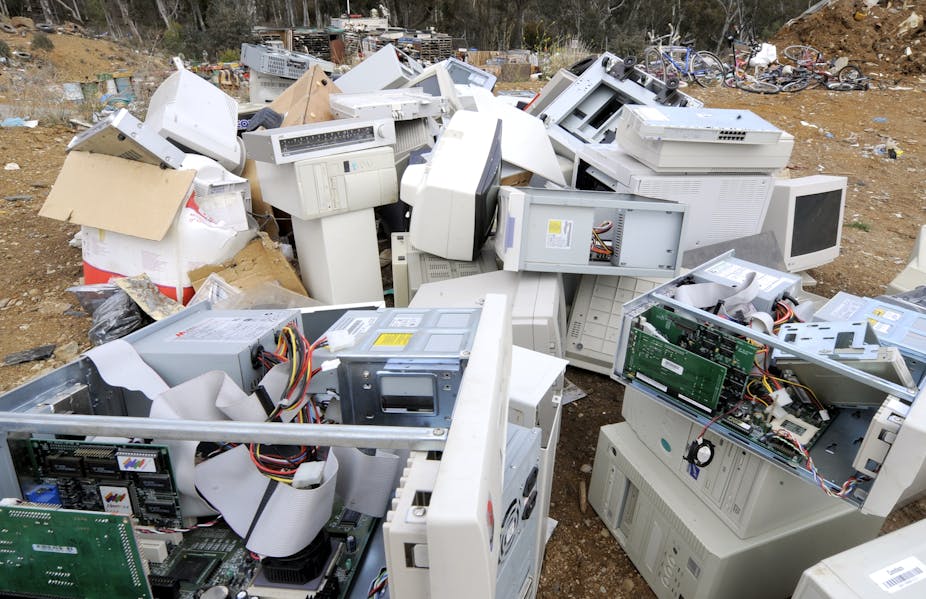Sustainability is often criticised as too diffuse a term to be meaningful.
Yet it is too important to ignore.
Business can be a positive force for change towards sustainability, playing a crucial role in providing creative solutions to the problems facing the planet and our communities.
And higher education has a critical role to play in developing the capacity of future business leaders to bring about sustainable business solutions.
But clearly, there are entrenched barriers to bringing sustainability specialists such as climate scientists together with policy makers and business decision-makers to generate more sustainable policies.
This is an example of not only the disjunction between disciplinary areas within our higher education system, but also the communication shortfall between our higher education institutions and other aspects of society.
Such gaps must be addressed if we are to meet the major social, environmental and institutional challenges of sustainability.
Focusing on sustainability
Our response at UTS is to create the Chair of Sustainable Enterprise to help focus sustainability research, teaching and external engagement with UTS as well as collaborating with business, government and NGOs.
To achieve such an approach, we need to embed sustainability principles across business school curriculum, while linking ethical business and sustainability practices into both research and teaching programs.
It also means working with teams from other faculty areas such as design, architecture, science and engineering and a range of other research and teaching opportunities.
It might entail, for instance, encouraging cooperation between management academics to work with expert methodologists in the social sciences to develop detailed, empirically-grounded and systematic criteria for evaluating what environmental partnerships can actually achieve.
Or it might mean working with supply chain specialists to assess codes and guidelines for sustainable supply chain management and with accountants to reengineer financial systems and processes to support the uptake of energy efficiency.
Crucial to work with business
It is crucial that as academics we work with business and other key stakeholders to identify the skills and capabilities needed in our students.
Several recent surveys of CEOs and senior business managers, such as the 2010 UN Global Compact Accenture 2010 study, indicate that the majority of business leaders recognise their firms have a long-term vested interest in getting it strategically right when it comes to sustainable management practice.
But many of these leaders are unsure of how to drive such changes. Many perceive that their firms do not have the capabilities to deliver sustainable transformations necessary in their manufacturing processes, products and services for future business viability.
Developing student capacities
Key to this capability development in our students are the generic communication skills that will enable cooperative networking and innovation across supply chains and industry sectors.
We need flexible and creative thinkers who will be the innovators and entrepreneurs prepared to examine the win-win of economic return that does not degrade natural or social capital and can add to human potential.
It is essential we revise our teaching and learning strategies to develop this potential.
Real life teaching
Cross-disciplinary team and practice-based teaching and learning that focuses on addressing real-life problems such as sustainability is already being applied successfully at leading universities such as the Hasso Plattner Institute of Design at Stanford.
These principles could be applied in collaborative projects between our business schools and other disciplinary areas that are informed by industry stakeholders.
These are not impossible or unachievable aims.
There are exemplary models of teaching and learning we can follow.
But equally, there are some outstanding examples of business organisations and networks already working to the ends of sustainable practice by applying team-based, multiple stakeholder and multidisciplinary approaches to foster creative problem-solving.
We would do well within the university to apply such practices in our roles as teachers and researchers.
Local examples
One local example of a firm whose approach to workplace learning and innovation we could emulate is the Fuji Xerox Eco Manufacturing Plant at Zetland in Sydney.
The closed-loop re-manufacturing model is operating here to world’s best practice standards in sustainability.
The centre now accounts for 80% of Fuji Xerox Australia’s spare parts requirements – these parts would otherwise have gone to landfill.
The success of the centre rests on both technological advances and a high performance workplace culture.
The re-manufacturing/re-engineering process provides information that can be used to improve component design.
Hence the business benefits from this approach to manufacturing include decreased costs due to recycling; improved design for increased reliability and enhanced performance and savings from import substitution and new export earnings.
The team structure at the centre promotes multi-skilling, enhances communication around problem identification and problem solving and builds deep expertise and cumulative experience.
The recent visit to Australia by Dan Swinney, Executive Director of Chicago Manufacturing Renaissance Council, provided us with another real-life example of what can be done through multiple stakeholder collaboration to promote future thinking and innovation – another model that could be taken up by our business schools in their teaching and learning and in their relations to other stakeholders.
Swinney’s approach is to promote collaboration across educational institutions, labour, business and government to generate an advanced, high tech manufacturing industry.
Moral leadership
The success of the initiative appears to be dependent upon team-based approaches to high-level and multi-functional skills development fostered by close linkages between business and technical schools.
These examples of sustainable enterprise point to what I see as a key aspect of my role in UTS Business School - to promote interaction and dialogue across the wide range of business, NGO, governmental, intergovernmental and industry-based organisations and associations whose interests impact on a sustainable future for Australia.
Ensuring business and industry account for their social and environmental externalities are areas traditionally dependent upon policy development and leadership from government and inter-governmental bodies.
The academic sector has an enormous capacity to contribute in a positive way to these efforts.
Importantly, it must take moral leadership in promoting the creative intersection between public and private interests that will ensure a resilient and sustainable economy and society.

